Recent Blog Posts
Why Are Participants in the January 6 Riot Facing Low-Level Charges?
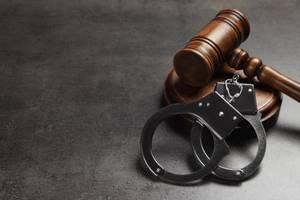 People throughout the United States were shocked by the events of January 6, 2021. Protestors who believed that former president Donald Trump had not lost the election in 2020 engaged in violent and destructive behavior as they stormed the U.S. Capitol building. Since those events, many people who participated in the riot have been arrested and charged with crimes. Because the riot involved the destruction of government property, many of the protestors are facing federal criminal charges. However, some have been troubled by what seem to be lenient sentences for people who attempted a violent overthrow of our country’s democratic processes.
People throughout the United States were shocked by the events of January 6, 2021. Protestors who believed that former president Donald Trump had not lost the election in 2020 engaged in violent and destructive behavior as they stormed the U.S. Capitol building. Since those events, many people who participated in the riot have been arrested and charged with crimes. Because the riot involved the destruction of government property, many of the protestors are facing federal criminal charges. However, some have been troubled by what seem to be lenient sentences for people who attempted a violent overthrow of our country’s democratic processes.
Federal Judge Questions Plea Deals in Capital Riot Cases
While more than 100 people have been charged with and convicted of crimes related to actions they took in the January 6 riots, many people have been troubled by what seems to be lenient treatment for these defendants. Recently, U.S. District Chief Judge Beryl Howell questioned whether the way the Department of Justice is pursuing charges in these cases is causing confusion for the American public about the attack on the U.S. Capitol.
Issues That May Affect the Release of Prisoners Under the First Step Act
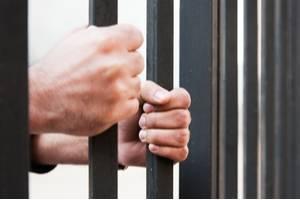 The United States has some of the highest rates of incarceration in the world. With more than 200,000 inmates who have been convicted of federal crimes, the government has been looking for ways to reduce the prison population and allow those who have served time to be released and reintegrate into the community. While Congress passed the First Step Act in 2018, allowing certain inmates to be released based on Earned Time Credits, the Bureau of Prisons (BOP) had not taken steps to implement these new policies until 2022. However, there are a number of issues that may affect prisoners’ ability to secure early releases.
The United States has some of the highest rates of incarceration in the world. With more than 200,000 inmates who have been convicted of federal crimes, the government has been looking for ways to reduce the prison population and allow those who have served time to be released and reintegrate into the community. While Congress passed the First Step Act in 2018, allowing certain inmates to be released based on Earned Time Credits, the Bureau of Prisons (BOP) had not taken steps to implement these new policies until 2022. However, there are a number of issues that may affect prisoners’ ability to secure early releases.
Racial Disparities in Risk Assessment Tools
Thousands of prisoners have become eligible for release under the First Step Act. Those who are in prison may qualify for home confinement or residence in a halfway house as they begin to take steps to ensure that they will be able to rejoin society successfully. Those who are currently under home confinement or in residential transition centers may be eligible for a full release, allowing them to secure housing and employment.
Court Ruling May Affect the Use of Video Testimony in Criminal Trials
 During the COVID-19 pandemic, many courts throughout the country have struggled to hear cases while also protecting the health and safety of participants. To prevent the spread of infections, in-person proceedings have been limited in many cases, and some courts have begun using technological tools to allow certain participants to connect remotely. While the use of remote technology has provided benefits in certain situations, many people have raised concerns about how these practices may affect a person’s right to a fair trial in criminal cases. While courts throughout the United States have addressed this issue in different ways, one recent court ruling may indicate that the use of remote video testimony may violate defendants’ rights in criminal trials.
During the COVID-19 pandemic, many courts throughout the country have struggled to hear cases while also protecting the health and safety of participants. To prevent the spread of infections, in-person proceedings have been limited in many cases, and some courts have begun using technological tools to allow certain participants to connect remotely. While the use of remote technology has provided benefits in certain situations, many people have raised concerns about how these practices may affect a person’s right to a fair trial in criminal cases. While courts throughout the United States have addressed this issue in different ways, one recent court ruling may indicate that the use of remote video testimony may violate defendants’ rights in criminal trials.
Missouri Supreme Court Overturns Conviction Based on Remote Testimony
The Sixth Amendment of the U.S. Constitution provides criminal defendants with the right to confront their accusers. A person should be able to directly question a witness during a criminal trial. When witness testimony is provided in person, a jury can observe how the person answers questions, and their facial expressions, body language, and other responses may indicate whether they are telling the truth and whether they are trustworthy. Testimony provided through video or other remote technology may not provide a jury with enough information to make a decision in a criminal case.
Connecticut Parole Board May Grant Clemency to People Convicted at a Young Age
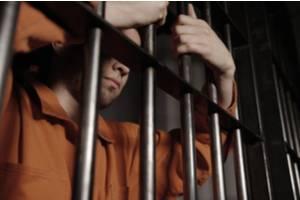 The criminal justice system often imposes harsh punishments on people who are convicted of crimes. While certain sentences may seem to be appropriate for those convicted of serious offenses such as murder, they can result in a person spending most of their life in prison, even if they committed these crimes while they were a minor. Advocates for criminal justice reform have noted that scientific research has shown that people’s brains continue developing until they are 25 years old, meaning that offenders who have committed these types of crimes at a young age may not have been fully aware of the consequences of their actions. In recognition of this and as part of ongoing efforts to focus on rehabilitation for those who have been convicted, the Connecticut Board of Pardons and Paroles has begun taking action to reduce the sentences of certain offenders.
The criminal justice system often imposes harsh punishments on people who are convicted of crimes. While certain sentences may seem to be appropriate for those convicted of serious offenses such as murder, they can result in a person spending most of their life in prison, even if they committed these crimes while they were a minor. Advocates for criminal justice reform have noted that scientific research has shown that people’s brains continue developing until they are 25 years old, meaning that offenders who have committed these types of crimes at a young age may not have been fully aware of the consequences of their actions. In recognition of this and as part of ongoing efforts to focus on rehabilitation for those who have been convicted, the Connecticut Board of Pardons and Paroles has begun taking action to reduce the sentences of certain offenders.
Has Wire Fraud Become More Common During the COVID-19 Pandemic?
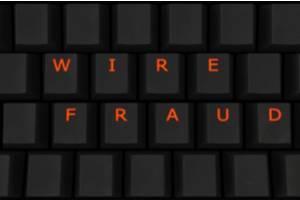 There are a variety of situations where a person may be accused of committing crimes involving theft or misappropriation of money. Many of these cases fall under the category of white-collar crimes, which typically involve the theft or misuse of people’s financial information or other actions in which a person obtains money fraudulently. White-collar criminal cases will often involve accusations of wire fraud, and in some situations, a person may face federal charges. According to the FBI, instances of wire fraud have increased significantly over the past few years. Those who are accused of these types of crimes will need to understand the nature of an offense and the potential penalties they may face if they are convicted.
There are a variety of situations where a person may be accused of committing crimes involving theft or misappropriation of money. Many of these cases fall under the category of white-collar crimes, which typically involve the theft or misuse of people’s financial information or other actions in which a person obtains money fraudulently. White-collar criminal cases will often involve accusations of wire fraud, and in some situations, a person may face federal charges. According to the FBI, instances of wire fraud have increased significantly over the past few years. Those who are accused of these types of crimes will need to understand the nature of an offense and the potential penalties they may face if they are convicted.
What Is Wire Fraud?
Fraud includes any actions in which a person obtains money or property through false pretenses. When these actions involve the use of electronic communications, including phones or internet services, they may be considered wire fraud. Because wire fraud will often involve messages or other forms of communication that are transmitted across multiple states, these offenses may be prosecuted at the federal level.
Connecticut Supreme Court Addresses Search Warrants Related to Drug-Sniffing Dogs
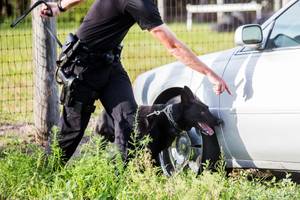 Defendants in criminal cases often face an uphill battle as they respond to the charges against them. Law enforcement officials have significant resources that they may use as they investigate an alleged crime, gather evidence, and build a case against a person. However, defendants have certain rights, including protections against unreasonable searches and seizures. Recently, the Connecticut Supreme Court issued a ruling that may affect the types of searches that may be performed and the evidence that may be allowed in cases involving drug crimes.
Defendants in criminal cases often face an uphill battle as they respond to the charges against them. Law enforcement officials have significant resources that they may use as they investigate an alleged crime, gather evidence, and build a case against a person. However, defendants have certain rights, including protections against unreasonable searches and seizures. Recently, the Connecticut Supreme Court issued a ruling that may affect the types of searches that may be performed and the evidence that may be allowed in cases involving drug crimes.
Court Rules on Search Warrants, Canine Sniffs, and Visual Sweeps
In the case of State of Connecticut v. Ricardo Correa, the defendant was charged with multiple drug-related offenses. During his initial trial, the defendant filed a motion to suppress evidence, claiming that the evidence was uncovered due to the use of a drug-sniffing dog and an officer’s visual observations that were performed prior to obtaining a search warrant. This motion was denied, and the defendant was convicted and sentenced to nine years in prison. The defendant appealed the case, but the Appellate Court ruled against him. However, after a further appeal, the Connecticut Supreme Court reversed the Appellate Court’s decision and found that the search was unconstitutional.
Why Have Murders Increased During the COVID-19 Pandemic?
 While the COVID-19 pandemic is continuing to affect the people’s lives in many ways, one issue that has become a concern is the significant increase in the murder rate throughout the United States. Between 2019 and 2020, the U.S. saw the largest increase in number of murders committed since the 1990s, and the murder rate increased again in 2021. There are a number of possible reasons for this increase, and because so many people may be affected by this issue, it will be important for those involved in these cases to understand how to address potential criminal charges.
While the COVID-19 pandemic is continuing to affect the people’s lives in many ways, one issue that has become a concern is the significant increase in the murder rate throughout the United States. Between 2019 and 2020, the U.S. saw the largest increase in number of murders committed since the 1990s, and the murder rate increased again in 2021. There are a number of possible reasons for this increase, and because so many people may be affected by this issue, it will be important for those involved in these cases to understand how to address potential criminal charges.
Murder Statistics and Potential Reasons for These Trends
In 2020, the total number of murders in the United States increased by nearly 30 percent, with a total of over 21,000 murders. This increase affected people throughout the country in both large cities and areas with lower populations. However, Black people were much more likely to be affected. Nearly half of murder victims in 2020 were Black, and during this time, Black people were eight times more likely to be murdered than white people. While complete data on murders for 2021 have not yet been released, some preliminary data indicate that murders may have increased as much as 15 percent since the previous year.
New Rule May Allow Federal Prisoners to Be Released Based on Time Credits

People who are convicted of federal crimes often face harsh prison sentences. Fortunately, some programs are available to help these prisoners be released early while also encouraging them to re-enter society successfully and avoid criminal activity in the future. The First Step Act, which was passed in 2018, created a program that allows prisoners to earn time credits against their sentences. The Bureau of Prisons (BOP) recently implemented a new rule that will put this program into effect, and it may allow thousands of prisoners to be released in the near future.
Implementation of the Time Credits Program
The programs created under the First Step Act are meant to help convicts take steps to limit the likelihood that they will re-offend after being released, while also ensuring that they will be productive members of society. The law allows prisoners to earn time credits by participating in Evidence-Based Recidivism Reduction (EBRR) programs such as literacy programs or occupational education programs, as well as Productive Activities (PAs) such as Alcoholics Anonymous, drug abuse treatment programs, and programs that address physical and mental health and provide education and job training.
How Is the Omicron Variant Affecting Court Cases in Connecticut?
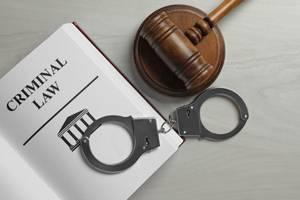 As the COVID-19 pandemic enters its third year, large numbers of people throughout the United States are still becoming ill. To protect public safety as much as possible, government institutions, including the court system, are continuing to take steps to minimize the potential spread of infections. These measures may affect both criminal and civil cases, and those who are involved in these matters will want to understand how they may be affected and how they can make sure their rights will be protected during legal proceedings.
As the COVID-19 pandemic enters its third year, large numbers of people throughout the United States are still becoming ill. To protect public safety as much as possible, government institutions, including the court system, are continuing to take steps to minimize the potential spread of infections. These measures may affect both criminal and civil cases, and those who are involved in these matters will want to understand how they may be affected and how they can make sure their rights will be protected during legal proceedings.
Court Closures and Options for Remote Courtroom Technology in Connecticut
While state and federal courts in Connecticut have implemented measures meant to protect people’s safety, they have been required to make repeated changes to address potential risks. Most recently, the spread of the highly-infectious Omicron variant of Covid has led the U.S. District Court of Connecticut to pause all jury trials and jury selections until at least February 1, 2022. While this will affect cases heard in federal courts, state courts may be able to continue operating during this time.
How Often Are Parents Falsely Accused of Child Abuse or Neglect?
 One of the worst things a parent can face is the claim that they have committed child abuse or otherwise caused their child to suffer harm. In these situations, a parent may not only face criminal charges, but an investigation by the Department of Children and Families (DCF) may result in children being removed from a parent’s home and other issues that will affect a person’s relationship with their child and other family members. Unfortunately, false claims of child abuse or neglect are all too common, and parents who are accused of committing crimes against children will need to understand the best ways to approach these situations.
One of the worst things a parent can face is the claim that they have committed child abuse or otherwise caused their child to suffer harm. In these situations, a parent may not only face criminal charges, but an investigation by the Department of Children and Families (DCF) may result in children being removed from a parent’s home and other issues that will affect a person’s relationship with their child and other family members. Unfortunately, false claims of child abuse or neglect are all too common, and parents who are accused of committing crimes against children will need to understand the best ways to approach these situations.
Increased Reports of Child Abuse and Neglect
Over the past decade in Connecticut, reports of suspected child abuse by teachers or other staff members at schools have increased by 150 percent. This increase is likely due to a change in the law that requires “mandated reporters” to notify the Commissioner of Children and Families or a law enforcement agency if they reasonably suspect that a child has been abused or neglected or is at risk of physical injury or other forms of harm. Mandated reporters include teachers and school employees, as well as coaches, social workers, or counselors.






